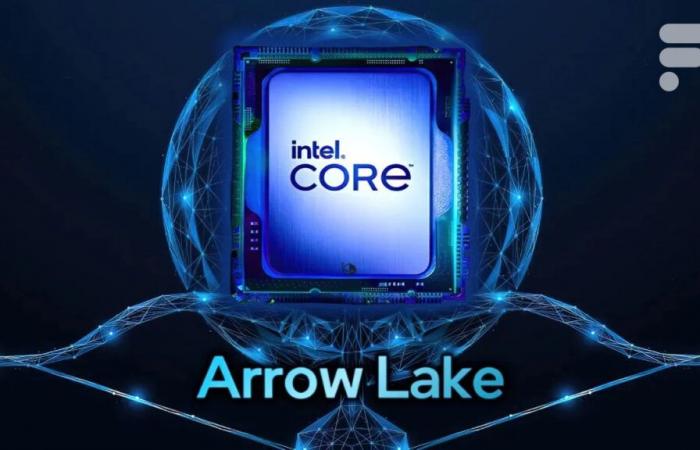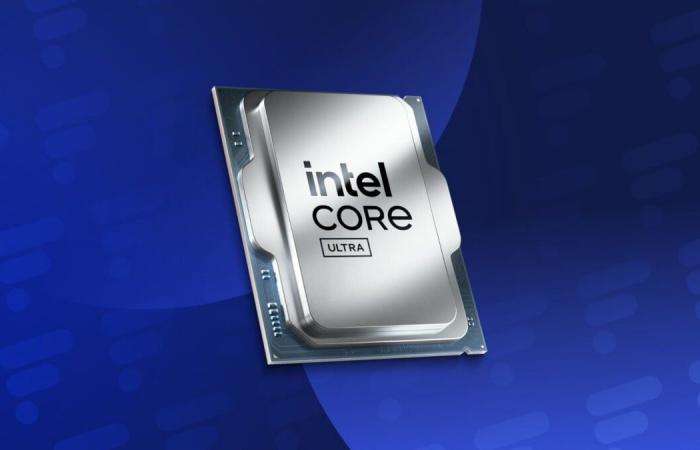Intel has just admitted in a new blog post the major difficulties encountered with its Core Ultra 200S series of processors. The semiconductor giant details four critical issues that have significantly impacted the performance of its Arrow Lake chips, particularly in gaming situations, while promising substantial fixes.
The situation is all the more delicate as the gaming performance of Arrow Lake had already been revealed lower than the previous generation Raptor Lakea fact that Intel had anticipated during the launch in October. And this despite very high prices which have probably weighed down sales.
The company then justified this regression by a priority given to energy efficiency for gameswhile promising performance gains in multi-core workloads. If this last promise was kept, the tests of the Core Ultra 9 285K and Core Ultra 5 245K (replacements of the Core i9 14900K and Core i5 14600K) revealed significant differences between the performances announced by Intel and those observed by the testers. They therefore pale in comparison to the AMD Ryzen 7 9800X3D, which is much faster in many areas.
Arrow Lake chips suffer from several problems
The first major problem identified concerns the absence of a PPM (Power Performance Management) package in Windows. This critical component, similar to a driver controlling clock rates and other timing parameters, had not been scheduled for a timely Windows update. This omission led to a cascade of malfunctions: erratic processor behavior, significant variations in benchmarks, reduced single-core performance, and unexpected memory latency spikes. Intel confirms that Windows update KB5044384 now contains this profile, allowing up to 30% of lost performance to be recovered.
The second critical problem concerns l’Application Performance Optimizer (APO)a crucial tool for thread management on Intel’s hybrid architecture. This architecture, used for four generations of processors, combines high-performance cores (P-cores) and efficient cores (E-cores). Without PPM, APO could not function properly, causing a performance loss of up to 14% in games. Although few testers use APO during initial evaluations, its proper functioning is crucial for end users.
A third, more specific problem concerns a conflict between Windows 11 24H2 and Epic Games’ Easy Anti-Cheat anti-cheat service. Although this issue seems more related to the operating system than the processors themselves, it has affected many popular games like Fortnite. Epic Games has since released a patch distributed to developers.
The last major problem concerns motherboard manufacturers. During the testing period, BIOS updates have multipliedrevealing significant inconsistencies in the configuration of Core Ultra 200S processors. Critical parameters like Resizable BAR, Intel APO, ring bus frequency, memory controller ratio, and power limits were applied inconsistently. These issues resulted in memory latencies up to twice expected and significant variations in performance.
Intel claims to have corrected the situation and is already planning other updates
Intel says most of these issues are now resolved with Windows update KB5044384 and the latest harmonized BIOS. However, some issues persist, such as the variable ring clock observed on some MSI motherboards, raising questions about coordination between Intel and its partners.
The company also announces new improvements via a firmware update planned for the end of Januaryincluding microcode 0x114. These changes will be presented in detail at CES 2025, where Intel promises to demonstrate the performance gains obtained.
This situation nevertheless raises important questions about Intel’s validation process. How could such fundamental problems have gone unnoticed before the commercial launch? The answer may come in January, when testers will be able to check whether these fixes allow Arrow Lake processors to finally reach their full potential in the face of growing competition from AMD, particularly against the powerful Ryzen 7 9800X3D for gaming and Ryzen 9,9950X for content creation. In the meantime, current Arrow Lake users are encouraged to update Windows and their BIOS to benefit from the first performance improvements.







